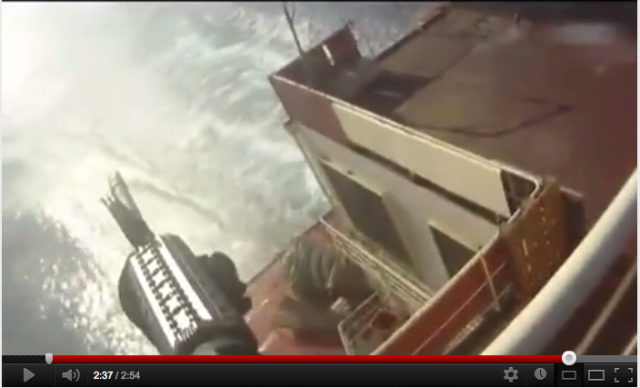Lately I have been delving into privateering history, and Secretary of State William L Marcy comes up now and again. Even John Arquilla was quoting stuff about Marcy in some of his work, so I thought it would be cool to do some digging.
I was able to find an old article written about Marcy’s mission to the Congress of Paris, and the debates he was having with the other members of that congress about the terms of the Paris Declaration Respecting Maritime Law. This of course is the treaty that banned privateering.
With that said, Secretary Marcy is the reason why the US is ‘not’ a signatory of this treaty. His reasons were pretty simple as the quote below says. Privateering is a tool of warfare that smaller sovereigns can use, that lack the resources for creating navies that can compete with the larger countries with more powerful navies. It was the great equalizer of the time, and the US was not about to give up that tool of warfare.
Privateering is also an ‘offense industry’ that creates an industry that attacks weakness with strength (Sun Tzu). That ‘weakness’ is a poorly defended and dispersed commerce (and logistics/source of wealth) of an enemy, and the ‘strength’ is an industry that only grows with each prize that it captures. (today’s piracy is a prime example)
The strength does not come from one vessel, but of thousands of vessels, all hunting and canvassing the seas, looking for their prey. And all of these vessels are competing with each other over enemy prizes. The successful privateers grow their fleets and expand upon their winning strategies, while the competitors of these successful privateers watch and learn and try to mimic what they are doing to be equally successful.
This system of free market warfare also works well with The New Rules of War that John Arquilla and David Ronfeldt put together.(watch this video about the concept) That privateers are the ‘small and many’, that go up against the enemy’s ‘large and few’. Privateers also fit well within the concept of ‘swarming’, because privateers do not set out in large battle groups or flotillas–they attack from all and any directions in small groups, and at the time and choosing of each individual privateer. There is no large navy, for a large navy to attack….
Although under the swarming concept, this industry kind of shuns large companies to do this. A swarm has to be cost effective, if it is to be done by a single privateer company. Most would prefer to go after low hanging fruit or easy prizes. But if the money was there, swarming could easily be cost effective. Today’s pirates are experimenting with swarming and the market will determine if this is a profitable venture.
On the other hand, an industry of thousands of privateers versus the commerce of an enemy totally presents itself as a swarm. No one controls it’s actions, it attacks when and where it wants. There is no admiral directing the attacks of all of these vessels, and that is what makes it a unique attack group. The only controls in this type of industry, are a simple Letter of Marque.
Most of all, the concept of ‘finding’ works really well with privateers, because each private vessel is purely focused on ‘finding’ prizes. Their livelihood depends upon it, and those captains that are best at finding prizes, wins. Investors hire them specifically because of their success rates, and they depend upon these captains for profit. An example would be commercial fishermen, and how important a good captain is for finding fish and to covering the costs of investment–both internal and external.
All of these attributes combined, is what makes privateering an asset for nations. Secretary Marcy knew this as well, and our leaders knew this when they decided not to be a signatory to the Paris Declaration.
Finally, I mentioned before that private industry was important during times of war, because this nation uses an All Volunteer Military system. The problem with this system is that during the post war era, a citizenry demands a peace dividend, and their politicians give it to them. The military is then reduced in size and cost, and everyone is happy–until another ‘9/11’ happens. And then we must go to war with the military we have, and not the one we wished we had.
Or during that war, it becomes unpopular for whatever reason–like it drags on and on, or there is an uptick in deaths, or the economy is doing well. Finding volunteers during those times is tough. Or when a nation’s war plans becomes a victim of politics, with changing leadership or alliances crumbling because of issues in their home countries, and manpower issues arise during those time periods.
Man power requirements are always changing during a war, and war planners and politicians need tools to meet the needs of those changing man power requirements. Using privateers and private industry during times of war is a tool that gives our leaders the means to deal with the ups and downs, beginnings and ends of war or multiple wars. Private industry is what makes an All Volunteer Military work in this kind of environment, pure and simple. I think Secretary Marcy and others realized this back then about privateering, and today’s leaders realize how important private industry is for our current and future wars. –Matt
*For an excellent history about the Paris Declaration and why the US did not sign it, check out this downloadable book. It is called “The Abolition of Privateering and the Declaration of Paris”, written in 1887 by Francis Raymond Stark.

They tell us, “reserving the right to make what havoc our overgrown navies may choose to inflict upon your tempting commerce, we demand that you exempt our commerce from the only means of retaliation you possess, the system of privateering.”
We reply, “The terms are unfair. Equalize them by declaring your public and our private armed vessels under the same prohibitory rule, and we are with you. Otherwise, we are constrained to deny that privateering is or ought to be abolished.”
– quote of Secretary William L. Marcy, about the Congress of Paris and terms of treaty, August 12, 1856.



